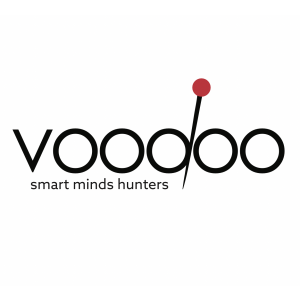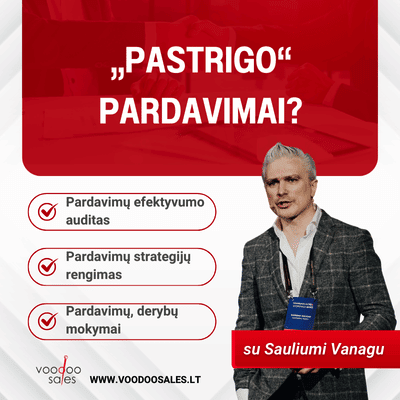5 JOB INTERVIEW SKILLS THAT WILL HELP YOU GET HIRED FASTER
1 year ago
Jūratė Jurginytė, career & leadership couch | Prasmingi pokyčiai |
For many of us, a job interview is the scariest or simply the most unpleasant thing. It's like speed dating, but with an incredibly high level of stress and fear that I might not be chosen and will be left without a job, without money...
"So many people don't even imagine what they want to do, but they think they will magically figure it out by going to job interviews. If you're not sure, this uncertainty will scream loudly about you during the interview."
Therefore, it's important first to clarify for yourself or with a career consultant what you want (role, responsibilities) to be and what value you will bring to a new employer. Once you know this, you can prepare for job interviews. It's important to acquire these 5 skills:
1 Plan and Practice Your Introduction
When faced with an open question like "So... tell me about yourself," where should you start? Definitely not with your school graduation or subjects studied a decade ago or more.
The recruiter doesn't want a summary of your life story. They want to know why you are the most suitable and interesting person for this job.
So give the recruiter what they want and answer the question while maintaining eye contact. This way, you'll be on an equal footing and won't lose control. And you need to DECIDE IN ADVANCE which of your experiences (parts of your story) you will emphasize, taking into account the specific requirements of the job posting.
Thoughtful and purposeful storytelling is your secret weapon. Also, during the interview, you can use storytelling methods; it really helps establish a connection with the interviewer and become a much more memorable candidate.
2 Sell Your Strengths
Talking about your strengths during an interview is not uncomfortable. It's not bragging or trying to appear better than you are. It's a necessary skill to master if you want a job.
Take advantage of the opportunity to highlight your strengths and experience and be prepared to discuss: "Here are three main reasons why I would be great at this job:...".
Even if you're naturally introverted or modest, there are ways to talk about your strengths that don't contradict your personality.
First, state the facts of what you did:
"I 'led a project worth tens of thousands of euros,' which 'we delivered two weeks ahead of schedule' and which 'received excellent feedback from the client'."
Second, cite others:
"In my performance review, I received great feedback from my manager 'about my ability to mentor younger colleagues and motivate my team'."
And don't forget to practice out loud. After the fourth or fifth try, you'll feel how much easier and smoother it is to talk about yourself.
3 Prepare Key Points, Not a Script
How can you be prepared for an interview but also authentic and spontaneous?
Write down the key answers as you prepare for the interview, and highlight the key points. Just jot down a few points that provide the key answers to the most commonly asked questions.
Prepare and practice so that you can control your narrative, then no conversation will be difficult or scary for you.
4 Show Enthusiasm for the Role You're Applying For
As you prepare for the interview, learn about the company culture and values, think about which ones inspire you the most and why. Think about what examples you can provide where you fit the cultural or value aspects.
But even more importantly, you need to express with genuine enthusiasm how well you fit the job yourself and why you would like to do this job. Think about:
What unique qualifications do I have for this job?
Why would I be motivated to succeed if hired?
How does this job align with my career goals and what do I enjoy doing?
Knowing these answers helps the recruiter understand if you will be a dedicated and strong employee if hired.
5 Tell a Good (Short) Story
An important part where you can reveal your experience and the value you create is by telling a good story about how you managed to implement a project or achieve a team goal.
Start with the story – provide enough context to explain why the project was important.
Highlight your actions – key events, obstacles you encountered, and how you overcame them.
End with positive outcomes – either a specific business improvement ("we increased revenue by 8%") or an anecdotal outcome ("we increased the budget and the client renewed the contract").
To make your story concise and engaging:
Tell it in less than two minutes.
Use "I" instead of "we," e.g., "I came up with a solution" (if you did!) Think of your story as the start of a dialogue, not a monologue, so that the recruiter asks further questions to delve deeper, and then you'll see how well you're doing!

